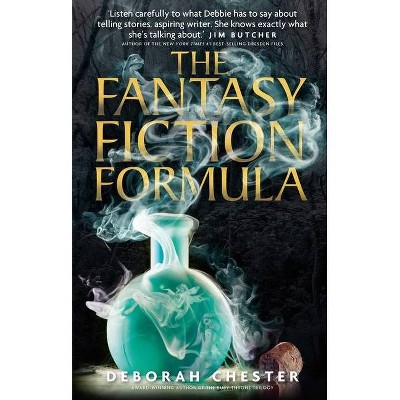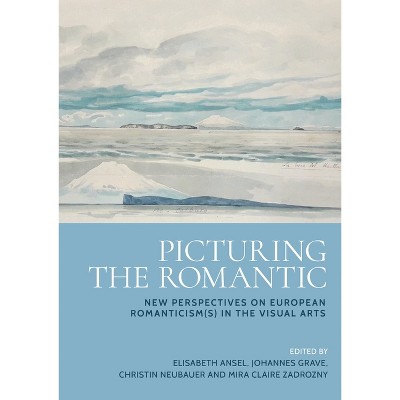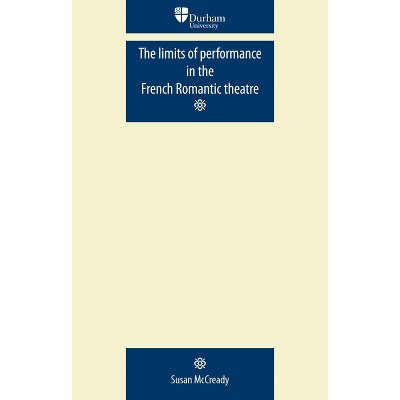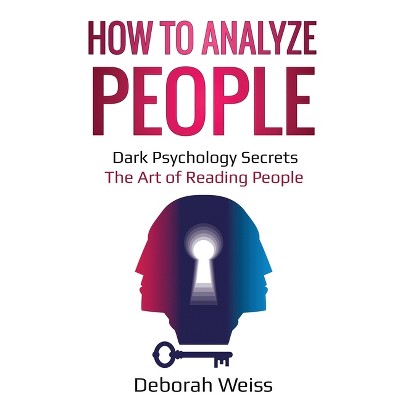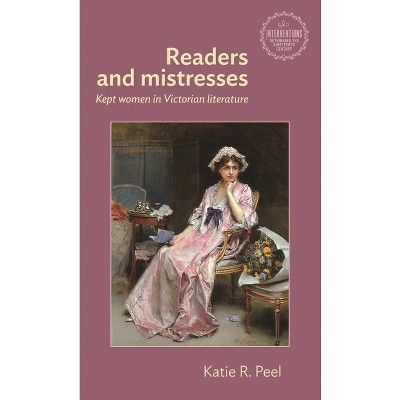Sponsored

Women and Madness in the Early Romantic Novel - by Deborah Weiss (Hardcover)
$130.00
In Stock
Eligible for registries and wish lists
Sponsored
About this item
Highlights
- This book argues that early Romantic-Period women novelists used female madness to critique patriarchal structures of control and to revise misogynistic medical and popular sentimental models that blamed inherent female weakness and the aberrant female body for women's mental and emotional afflictions.
- About the Author: Deborah Weiss is Professor of English at the University of Alabama
- 248 Pages
- Literary Criticism, Modern
Description
About the Book
This book argues that early Romantic-Period women novelists used female madness to critique patriarchal structures of control.
Book Synopsis
This book argues that early Romantic-Period women novelists used female madness to critique patriarchal structures of control and to revise misogynistic medical and popular sentimental models that blamed inherent female weakness and the aberrant female body for women's mental and emotional afflictions.From the Back Cover
Women and madness in the early Romantic novel returns madness to a central role in feminist literary criticism by offering a close look at the novels of five early Romantic-period women authors.
In an updated exploration of hysteria, melancholia, and love-madness, Weiss maintains that Mary Wollstonecraft, Eliza Fenwick, and Mary Hays created novels that exposed how medical models for mental disease and the popular sentimental figure of the love-mad maid (the woman who loses her mind when she loses her man) made it possible for men to hide their culpability for injuring women. Weiss demonstrates that in their novels, patriarchal structures of control are responsible for the protagonists' bouts of hysteria and their dangerous melancholia. Making careful and important distinctions between authors, Weiss shows how the popular and more mainstream authors such as Maria Edgeworth and Amelia Opie explored less gendered and less victimised models of causality, such as the shock of traumatic experience on the human psyche, misplaced passions, erroneous associations, and remorse. Taken as a whole, the book demonstrates that these authors' treatment of female madness played a key role in the development of the psychologically complex female heroine of the nineteenth-century novel. In so doing, Weiss makes a powerful case for focusing on women's mental health in eighteenth- and nineteenth- century literary criticism.About the Author
Deborah Weiss is Professor of English at the University of AlabamaDimensions (Overall): 9.21 Inches (H) x 6.14 Inches (W) x .63 Inches (D)
Weight: 1.16 Pounds
Suggested Age: 22 Years and Up
Sub-Genre: Modern
Genre: Literary Criticism
Number of Pages: 248
Publisher: Manchester University Press
Theme: 19th Century
Format: Hardcover
Author: Deborah Weiss
Language: English
Street Date: November 19, 2024
TCIN: 92660052
UPC: 9781526175717
Item Number (DPCI): 247-41-8671
Origin: Made in the USA or Imported
If the item details aren’t accurate or complete, we want to know about it.
Shipping details
Estimated ship dimensions: 0.63 inches length x 6.14 inches width x 9.21 inches height
Estimated ship weight: 1.16 pounds
We regret that this item cannot be shipped to PO Boxes.
This item cannot be shipped to the following locations: American Samoa (see also separate entry under AS), Guam (see also separate entry under GU), Northern Mariana Islands, Puerto Rico (see also separate entry under PR), United States Minor Outlying Islands, Virgin Islands, U.S., APO/FPO
Return details
This item can be returned to any Target store or Target.com.
This item must be returned within 90 days of the date it was purchased in store, shipped, delivered by a Shipt shopper, or made ready for pickup.
See the return policy for complete information.
Trending Poetry

Bestseller
$22.89
was $24.48 New lower price
Buy 2, get 1 free select books
4.6 out of 5 stars with 52 ratings





$9.85 - $23.09
MSRP $15.99 - $32.99
Buy 2, get 1 free select books
4.8 out of 5 stars with 147 ratings
